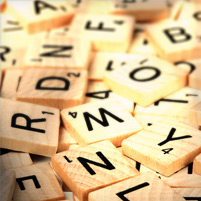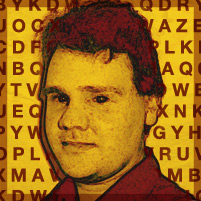SCRABBLE, Anyone?


Andrew C. Thomas
Next time you play SCRABBLE or the popular online game Words With Friends, don't get too excited if you draw the letter "Q." It has a high 10-point value but it's really more like a five-point penalty.
According to new research from Andrew C. Thomas, SCRABBLE aficionado and visiting assistant professor of statistics in Carnegie Mellon University's Dietrich College, "Q" is the worst tile to have and you will end up scoring less because of it.
The best letters to have are S, Z and X.
Thomas' findings come from simulating roughly 10 million SCRABBLE games using an open-source artificial intelligence crossword game called "Quackle."
Thomas conducted the research to determine how to better design a tournament to make the variable of drawing tiles as small as possible.
"I also wanted to find out how much of the variance in score comes from the tile order and board," he said.
In his study, Thomas lined the tiles up in a row instead of putting them in a bag. Each player (not seeing the line of tiles) drew from one end. The alteration allowed for the same pattern to be replicated over multiple games, so that a player's result could be better compared against others.
He found that when you draw a tile during the course of a game makes a difference; there is a 30-point swing for having a blank tile at the beginning of a game versus the end.
Thomas calculated each tile's worth as it affected final scores. "S," the best letter to have, adds approximately 10 points to a SCRABBLE score. "Z" and "X" are also good letters to have. "V" and "U" are not tiles you want to draw very often.
Other findings include:
- The blank is worth about 30 points to a good player, each "S" about 10.
- "Q" is a burden to whichever player receives it, effectively serving as a five-point penalty for having to deal with it due to its effect in reducing bingo opportunities (when a player uses all seven letters in one play), needing either a "U" or a blank for a chance at a bingo and a 50-point bonus.
- "J" is essentially neutral point wise.
"What's interesting about this research is that it used actual statistics — it wasn't just about having fun with SCRABBLE," Thomas said. "The simulations used data-mining and large-scale applications to tell us more about the game than we've ever known."
Thomas works in a number of different areas, but the reason he likes to think about what he calls these "frivolous" areas — like SCRABBLE, baseball or hockey — is twofold.
"It's great for introducing students to numerical topics, since data tends to be easily available, and it can often lead to deep insights in other areas, theoretical or otherwise."
Related Links: Thomas' Blog | Statistics | Dietrich College
